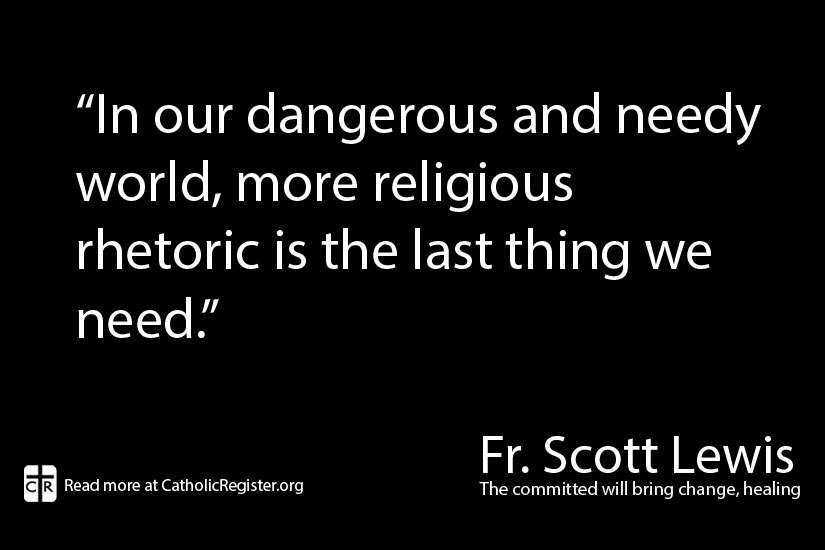Most of us don’t have such dramatic encounters or epiphanies that reveal to us the path we are to follow. More often than not, it is an experience that speaks to us — the loss of a job, changes in our family situation, personal struggles or inner disquiet can all alter the direction of our journey. In effect, one door closes so that another may open. But we should not rule out personal encounters. Sometimes we meet a person who has such a profound effect on us that we begin to question everything, often leaving our past behind. Occasionally this person is not even aware of it. Their contribution might be seemingly chance words or questions that provoke or enlighten.
Then there is that quiet but terribly persistent inner voice of the divine Spirit. It will not leave us alone, and there will be no inner peace until it is heeded. How do we know the real thing? A call from God will usually take us out of our comfort zone and away from the familiar. We will not know what the future holds, and although that can provoke anxiety, there will be a sense of joy, excitement and fulfilment. Everyone has a calling, but only a few listen for it or recognize the encounter when it occurs. Each day brings the possibility of a very different direction in our lives.
Freedom is often confused with excess, lack of self-control and irresponsibility. Paul recognized this in some members of the Corinthians community. They had misinterpreted freedom in the Spirit as “anything goes.” Paul insisted Christian freedom is freedom from self and for loving and serving others. That is the only true freedom, for it sets us free to be who and what God intended us to be. Paul urged his followers to live by this Spirit and not to take the road back to the slavery of fear, uncertainty and control. Unfortunately, that road has been well-travelled for the past 2,000 years.
Luke had a special take on the story of Jesus. In the first few chapters of his Gospel, there was a rather slow buildup. With 9:51, everything changed — Jesus turned and set His face towards Jerusalem. The tempo picked up; there was an air of urgency about everything. The sense of the text seems to be, “keep moving, don’t hesitate, don’t look back.” Although Elijah had used heavenly violence against his adversaries, Jesus would not hear of it, rebuking His over-zealous disciples. Since they believed the end time was fast approaching, the bar for discipleship was raised extremely high. A true disciple had to walk away from family and societal obligations and could not expect a life that was safe, comfortable or predictable.
With the above passage from 1 Kings clearly in mind, Luke portrays someone asking to say goodbye to his family before following Jesus. This time, however, there was no leeway — anyone who puts their hand to the plough and looks back is not fit for the kingdom of God. Although we do not live with as much apocalyptic urgency and expectation, the call to discipleship is still just as important, maybe even more so. Lukewarm, halfhearted or self-seeking commitments do not serve God’s kingdom. In our dangerous and needy world, more religious rhetoric is the last thing we need. Committed disciples, those who love and serve without counting the cost, will be the instruments of change and healing.


